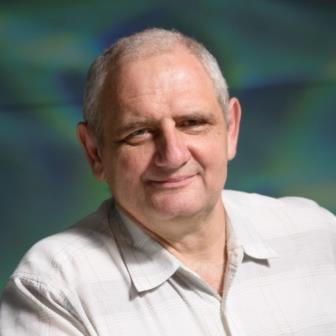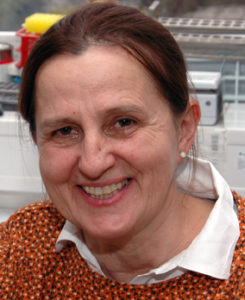Laboratory of Cell Reproduction
Head of the Laboratory:
Dipl. Ing. Jiří Hašek, PhD.
Phone: + 420 296 442 503
E-mail: hasek@biomed.cas.cz
| Ing. Jiří Hašek,CSc. | Head of the Laboratory |
| Doc. RNDr. Pavla Binarová, CSc. | Senior scientist |
| RNDr. Libuše Váchová, CSc. | Senior scientist |
| Mgr. Jana Chumová, Ph.D. | Associated scientist |
| RNDr. Stanislava Rešetárová, Ph.D. | Associated scientist |
| Ing. Otakar Hlaváček, Ph.D. | Scientist |
| RNDr. Jana Vojtová, Ph.D. | Postdoctoral fellow |
| Mgr. Hana Kourová, Ph.D. | Postdoctoral fellow |
| Mgr. Renata Lejsková | PhD student |
| Mgr. Pavla Novotná | PhD student |
| RNDr. Lenka Nováková | Research assistant |
| Ing. Danuše Hašková | Research assistant |
| Mgr. Martina Humpálová | Research assistant |
| Mgr. Michaela Zázvorková | Research assistant |
| Alexandra Pokorná | Technician |
In higher eukaryotic cells exposed to various environmental stresses translation initiation factors form cytoplasmic accumulations, called stress granules. We construct various S. cerevisiae strains expressing fusion proteins tagged with GFP, mRFP, mCherry, TagRFP and TagBFP from the chromosomal sites and analyze changes in distribution of translational factors,ribosomal proteins, mRNA binding proteins, mRNA and regulatory proteins under various stresses. Together, our data indicate that stress granules induced by robust heat shock represent dynamic structures resembling stress granules described in higher eukaryotic cells.
Sao Paulo State University, Araraquara, Brasil (Dr. Juliana Sposto Avaca Crusca, Prof. Valentini, Dr. Zanelli)
University of Salzburg, Austria (Prof. M. Breitenbach, Dr. M. Rinnerthaler)
Institute of Radio Engineering and Electronics AS CR, Prague (Dr. Jiří Pokorný, Dr. Michal Cifra)
NICHD NIH, Bethesda, USA (Dr. A. Hinnebusch)
Inst. Exp. Medicine AS CR, Prague, Czech Republic, (Dr. Jan Malinsky, Dr. Vendy Stradalova)
Laboratory of Cell Biology
Head of the Laboratory: Libuše Váchová, PhD.
Phone: +420 241 062 507
Fax: +420 241 722 257
E-mail: vachova@biomed.cas.cz
Laboratory of Cell Biology
The scientific work of the laboratory is focused on three topics:
1. Studies on physiology and molecular biology of multicellular yeast communities in the context of colonies and static liquid cultures. Research is focused mainly on i) regulatory and signalling mechanisms participating in differentiation of the communities during their development and aging, ii) on roles of membrane transport proteins, metabolic alterations, stress response systems and regulated dying in adaptation and long-term survival of the community as a whole and iii) on different strategies used by communities of natural and laboratory yeast strains.
2. Study of the effect of different stresses on yeast vitality, ageing, membrane structure and functions under both laboratory and industrial conditions; in particular, exploration of the response and adaptation of cells to stress and development of methods for determining the energy state and ageing of stress-exposed cells. Another major topic is the study of biosynthesis and structure of cell lipids in different microorganisms and their potential practical application. An important spin-off is the use of these data in industry (brewing, production of dietary supplements, biofuels).
3. Study of yeast cell aging and apoptosis as affected by genetic factors, environmental and intracellular (toxins, radiation, reactive oxygen and nitrogen species) stressors. Research into the onset and course of apoptosis in old and young cells, both wild-type and mutants. Examination of the role of mitochondria and respiration in the course of aging and apoptosis.
References since 2009
Laboratory of Functional Cytology
Head of the Laboratory: Assoc. Prof. Pavla Binarová, PhD.
Phone: +420 296 442 130
E-mail: binarova@biomed.cas.cz
Laboratory of Functional Cytology
Our research is focused on cytoskeleton, specifically we study regulation of microtubules nucleation and organization during the cell cycle progression and in response to stress. Gamma-tubulin is required for formation of microtubules at centrosomes, but its function in noncentrosomal microtubule nucleation is much less understood. To analyze the role of gamma-tubulin in acentrosomal plant cells we conditionally downregulated gamma-tubulin by inducible expression of dsRNA in Arabidopsis. We showed that gamma-tubulin is essential for microtubule nucleation from dispersed sites localized with nuclear envelope and with preexisting microtubules. Our data on presence of gamma-tubulin in plant nuclei were unexpected; however, later nuclear gamma-tubulin was reported from animal cells. Further we have demonstrated that independent of its function with microtubules, gamma-tubulin plays role in cytokinesis and nuclear processes. Based on growing number of evidence on gamma-tubulin as a multifunctional protein we characterize currently protein interactions of gamma- tubulin and their function in stress response and the cell cycle progression.





